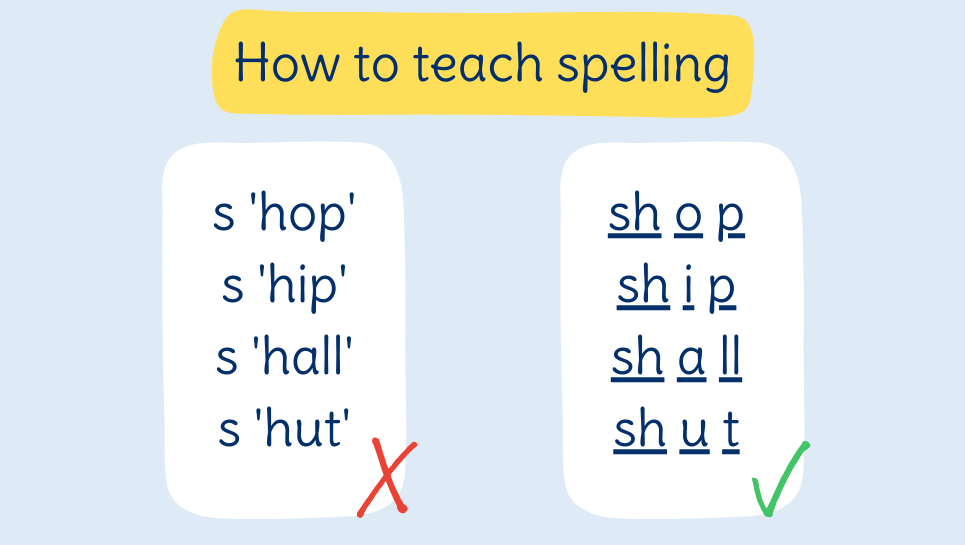It is not uncommon for reading interventionists to encounter students who try to use words within words as a spelling strategy. Some teachers may think that helping students remember how to spell a word that they can already spell, e.g., the word ‘hat’, may be useful to teach the word ‘that’. They then teach the children a little sentence: ‘There is a ‘hat’ in ‘that’.’
Here are some other examples that are used:
- I hop to the shop.
- There is pie within piece.
- The bus is busy.
- There is a lie in believe.
Why is this an ineffective spelling strategy?
- Words within words is a visual strategy for spelling – not one that is based on the sounds in the word. This strategy discourages using the Alphabetic Principle (the notion that letters spell sounds in words). Sometimes graphemes are broken up, as with ‘hop’ in ‘shop’. Other times the graphemes spell different sounds, as with ‘pie’ and ‘piece’. This is very confusing for beginner spellers.
- The assumption is that a little phrase or song will help students to remember how to spell a word. But if every word they need to learn to spell has a memory phrase, how does a student, who may already have a poor auditory memory, remember them all? This is cognitive overload!
How to teach spelling
The English spelling system is based on sounds in words. Students who can pronounce the words must use their knowledge of syllables and sounds as a scaffolding for spelling. If we move away from a sound-based spelling approach students may remember the letters in a word but spell them in the wrong order because sounds (phonemes) are the place holders for the letters when we spell.
So, it is much more effective to teach children the that the letters ‘sh’ spell the sound /sh/and get them to place the letters on lines. This way, they use their sound/letter knowledge for spelling. Then they can spell any word with this grapheme – ‘wish’, ‘fish’, ‘shelf’, etc. – without having to remember a mnemonic for each word.


